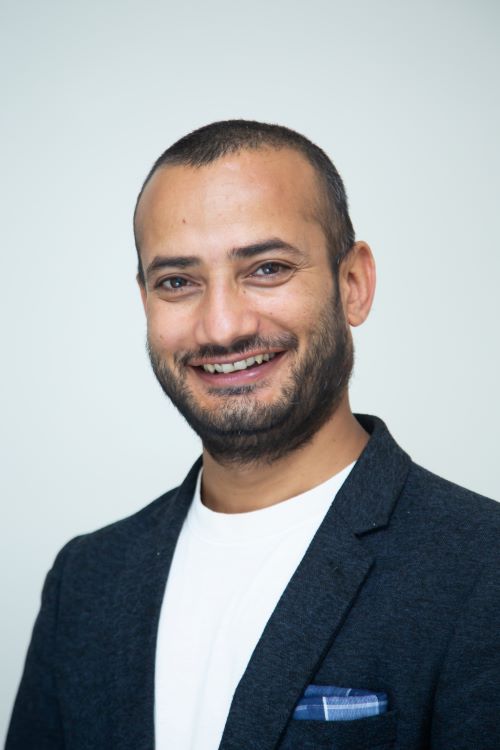Innovative Solutions for Water Safety Using AI and Nanophotonics
The advancement of technologies such as the use of nanophotonics, the Internet of Things (IoT) and artificial intelligence (AI) for capturing and analysing light-based data has seen remarkable progress in recent years, transforming many industries. Dr Ashim Dhakal focuses on leveraging these advanced technologies to address critical issues in low- and middle-income countries (LMICs). His work primarily centres on developing innovative, low-cost and real-time solutions for detecting harmful microorganisms in drinking water.
Dr Ashim’s commitment to applying cutting-edge technology to solve real-world problems is reflected in his pioneering research on using small-scale light waveguides to improve a technique called Raman spectroscopy, which is now widely used in analysing biological material globally. By raising awareness of the potential of AI and novel optical technologies, Dr Dhakal aims to significantly enhance the relevance and adoption of these transformative technologies in order to improve the quality of life in LMICs and contribute to the global scientific community.

A Career Dedicated to Applied Photonics and AI
Dr Ashim obtained his PhD in Photonics Engineering from Ghent University, Belgium in 2016, specialising in photonic integrated circuits for spectroscopy compatible with Complementary Metal-Oxide-Semiconductor (CMOS) technology. He chose to return to Nepal to apply his expertise to pressing local issues like water safety rather than pursuing opportunities in more developed countries.
In late 2016, he co-founded the Phutung Research Institute (PRI), where he has been at the forefront of research projects funded by international organisations to develop real-time water quality monitoring systems using optics-informed AI.
Dr Ashim has received multiple grants from international institutions such as the Engineering and Physical Research Council, Optica Foundation and the Glasgow Centre of International Development to investigate real-time water assessment systems for detecting microorganisms in drinking water. His work has not only advanced scientific understanding but also influenced national policy, leading to the formulation of a new Science, Technology, and Innovation Policy in Nepal in 2019.
Revolutionising Water Safety Monitoring
Dr Ashim’s project, supported by DIA, focuses on the real-time detection of microorganisms in drinking water using optics-informed AI. The project combines the use of light to gather the required signal and AI to instantly determine the safety of drinking water, overcoming the limitations of traditional methods, which include high costs and long incubation times.
Dr Ashim believes that future technologies offer more potential for disruptive innovation that can address many LMIC issues. Collaborating with Professor Daniele Faccio from the University of Glasgow, and Prof. Thomas Krauss from the University of York, Dr Ashim is integrating AI to enhance the accuracy and efficiency of water quality assessments. His DIA-supported project not only promises to improve water safety in Nepal but also serves as a model for similar initiatives in other LMICs.
Empowering Communities through Technological Innovation
Dr Ashim envisions an all-inclusive approach to water safety, where advanced technological solutions are accessible to everyone in developing countries. To achieve this, he is facilitating workshops and seminars to enhance collaborations and knowledge exchange between research communities, government officials, policymakers and community leaders. By fostering collaborations with global institutions and focusing on sustainable, scalable solutions, Dr Ashim aims to ensure that innovations in photonics and AI can directly contribute to public health improvements and economic development in LMICs. His activities can be followed on LinkedIn or through this website.
The DIA program provides me, my network and stakeholders related to water challenges with the means and opportunities to strengthen existing collaborations and explore new ones
Related content
DIA awardees
Distinguished International Associates (DIA) are international engineers working across all sectors. They work at the c…
FAQ
Information and answers to common queries about the Distinguished International Associates (DIA) Programme
